
On April 21st, I went birding to a reservoir near the village of Αγια, written as either Agia or Ayia in Roman characters. Ayia is about 9 km SW of Chania, the capital of the westernmost province of Crete, and the reservoir is a good spot for migrating waterbirds. The reservoir is surrounded by reedbeds and then agricultural land; the walk down to the lake goes past orange groves.
To quote the post I wrote on the day, now with some pictures: “The guide to birdwatching in Crete listed, among the possible birds for the site, Little Crake, Spotted Crake and Baillon’s Crake. I’ve never seen any of those before, but I didn’t get my hopes up because all the crakes are notoriously difficult to see; they skulk.
So I arrived and pretty much the first thing I saw? A crake! In full view! And I had one of those panicky moments of trying to put down the telescope in a controlled fashion and get a proper look at the bird and check the field guide, all at the same time, thinking I had to make use of my lucky moment, while the crake just kept pottering about at the edge of the reeds. After I’d had a long look at it and decided it was Little Crake (plain blue underside and no barring on the flanks, since you ask) I had a quick check in the other direction along the lake, and there was another one! And it became apparent that not only were they not bothering to skulk, they were extremely approachable.
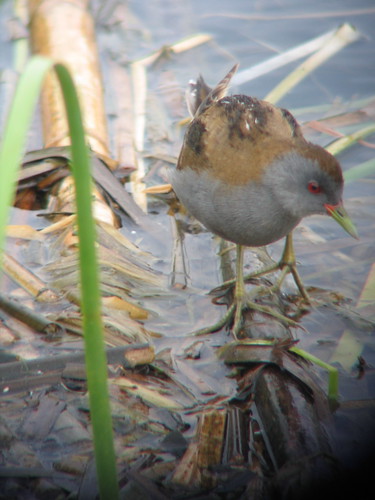
I can only assume that they are so tame because they’re on migration and their priority is eating furiously to get their strength up. From Africa to, say, Poland is a long way to fly for a little bird with stubby wings. I also got incredibly good views of a Little Bittern that just sat and looked at me as I approached instead of ducking into the reeds. Again, it was probably knackered from all the flying.”
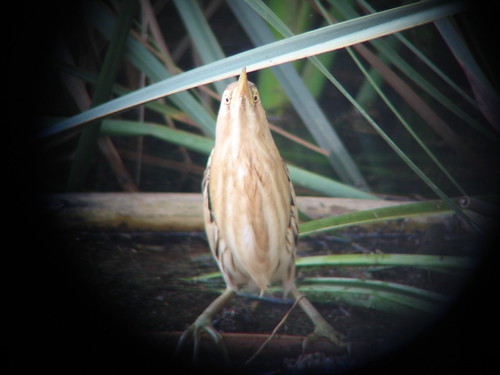
All that black around the edge of the picture is vignetting from the scope. Normally I’d zoom the camera to cut it off, but the bird was so close that I’d have to cut off its feet.
Here’s the rest of the list for the day, with a few comments:
Linnet
European Goldfinch
European Greenfinch
Chaffinch
European Serin
These finches are all residents on Crete, and may well have raised one brood already, even though the passage migrants are still heading north.
Spotted Flycatcher
European Pied Flycatcher
European Stonechat
Whinchat (below)
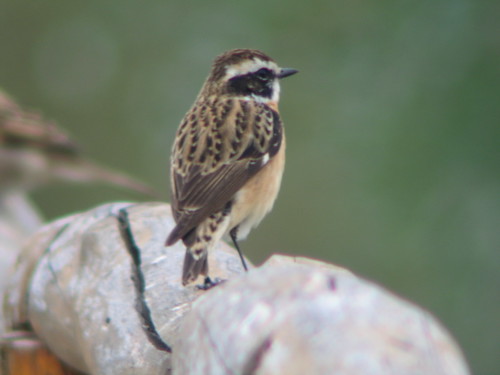
Nightingale (only heard)
Great Tit
Yellow Wagtail (the black-headed subspecies, Motacilla flava feldegg)
Sardinian Warbler
Cetti’s Warbler
Sedge Warbler
Common Blackbird
Barn Swallow
House Martin
Sand Martin
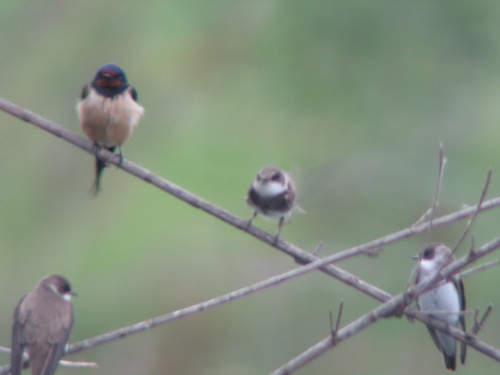
Barn Swallow and some Sand Martins resting in the reeds. Most Barn Swallows in Europe have pure white underparts; the reddish breast of the one here is typical of the eastern Mediterranean. And I’ve just learnt that what I call a Sand Martin is known as a Bank Swallow in the US, so if you were thinking they looked familiar, that might be why.
House Sparrow – the subspecies known as ‘Italian Sparrow’, Passer domesticus italiae.
Hooded Crow
Common Swift
Alpine Swift
Eurasian Coot
Common Moorhen
Little Crake
Little Bittern
Black-crowned Night Heron
Grey Heron
Little Egret (below)
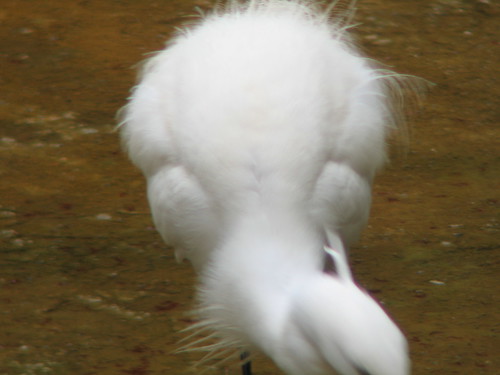
Little Stint
Common Sandpiper
Black-winged Stilt
Yellow-legged Gull
Common Kingfisher (below)
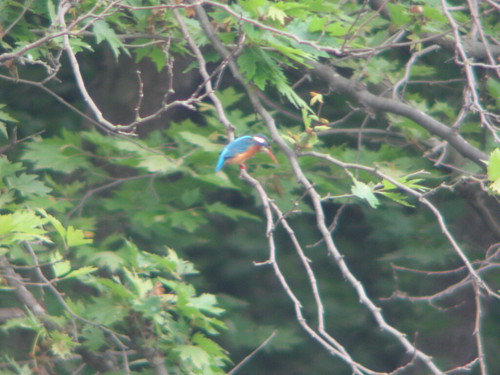
Common Cuckoo (below; another surprisingly tame bird)
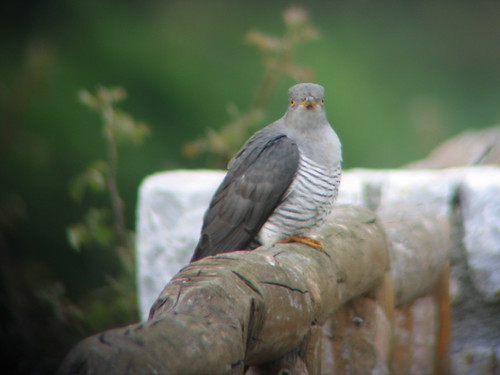
Little Grebe
Ferruginous Duck
My second lifetime tick for the day, after Little Crake. I was just settling down to a coffee (Greek, medium sugar) and saw a couple of birders intently peering through a scope at something which, when I wandered over, turned out to be a distant but definite Ferruginous Duck. It obviously pays to be nosy.
European Marsh Harrier
Common Buzzard
Peregrine Falcon
And one non-bird:
European Tree Frog
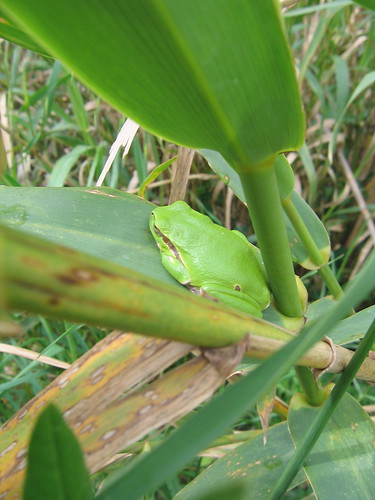
That barn owl bio blitz button is derived from a photo on Flickr by Nick Lawes used under a by-nc-sa licence; the button is therefore available under the same licence. Not that there’s anything wrong with the Jennifer’s BBB buttons, but I wanted something to match my colour scheme.








